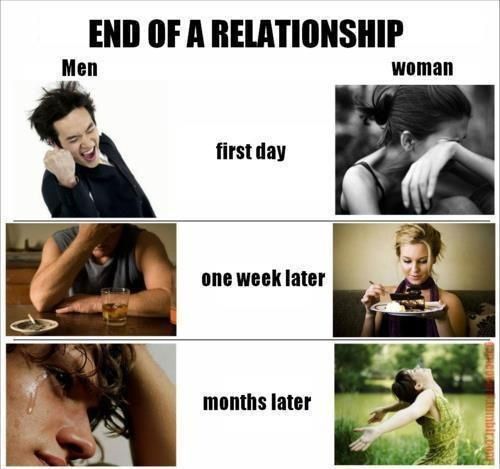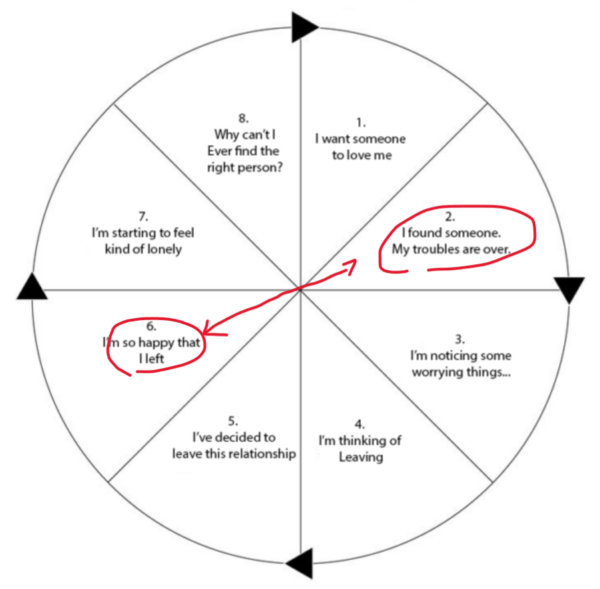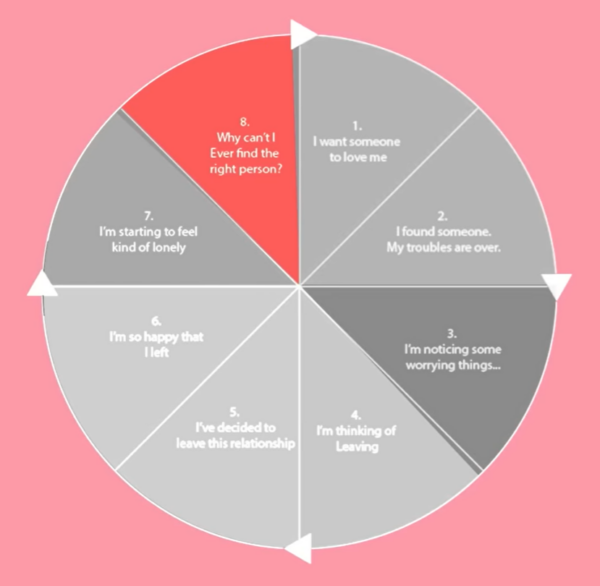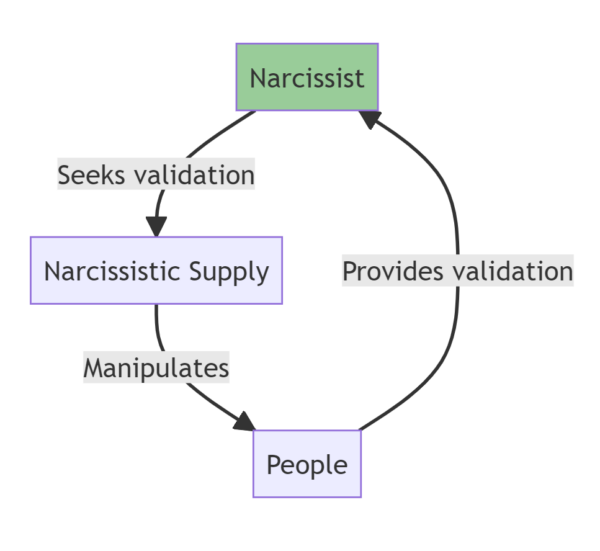Have you ever wondered if men process breakups differently than women?
Well, today that’s what I’m going to be exploring.
You see, I’ve found that men and women often process breakups differently due to a combination of societal expectations, emotional coping mechanisms, and personal experiences. While women are generally encouraged to express their emotions and seek support from friends and family, they might experience intense pain initially but tend to recover more fully over time. Men, on the other hand, might suppress their feelings due to societal norms that equate vulnerability with weakness.
But it actually goes even deeper than that. I’ve actually put a list of things together of the 13 main ways men process breakups differently than women.
Let’s dive right in.

What Are Your Chances of Getting Your Ex Boyfriend Back?
Take the quiz1. Women Experience Pain But Recover More Fully Compared To Men
Women tend to experience intense pain immediately after a breakup but recover more fully over time compared to men.
A notable study from Binghamton University highlighted this difference.
After examining how men and women process breakups, the study found that women typically experience acute pain right at the outset but eventually recover more completely. In contrast, men often exhibit a delayed reaction, with their pain intensifying over time.
This pattern is humorously depicted in a popular meme that contrasts the emotional trajectories of men and women post-breakup.
Turns out it’s completely true.
From my decade-long study of breakups, I’ve observed a similar trend.
Many clients approach me with the belief that their exes exhibit ‘dismissive avoidant’ behavior. The research backs this up,
Avoidant individuals often experience a phase of ‘separation elation’ post-breakup, reveling in their regained independence. However, this euphoria is short-lived, eventually giving way to ‘nostalgic reverie’ where they grapple with grief and longing.
This contrasts with many women who, ideally, begin processing their grief, emotions, and sense of loss immediately after the breakup.
2. Society Teaches Men To Suppress Their Emotions
Now, this might seem like common sense, but I went ahead and dug up some research from the National Library of Medicine.
This research suggests that many studies assume men generally lack societal support, leading them to suppress their emotions. However, these studies often fail to provide a clear picture of what men’s actual support networks look like in reality. They also don’t delve into how men might challenge traditional masculinity norms to seek and establish supportive social relationships.
The core question the study aimed to answer was whether there’s a robust support network available for men.
The findings?
Society often works against men. There’s this prevailing notion that men don’t need help, even when many genuinely do. This societal perspective, which assumes men should be self-reliant and less emotionally expressive than women, can strip away the human aspect of their experiences.
The research found that most men tend to navigate breakups solo, without seeking external support.
I’ve personally witnessed this trend. Over the years, I’ve developed two websites: ‘Ex-Boyfriend Recovery,’ aimed at helping women either reconcile with or move on from their ex-boyfriends, and ‘Ex-Girlfriend Recovery,’ which serves a similar purpose for men.
An intriguing observation I made was that ‘Ex-Boyfriend Recovery’ consistently garnered more traffic. For a long time, I pondered why, given that the content quality on both sites was comparable.

What Are Your Chances of Getting Your Ex Boyfriend Back?
Take the quizThen it dawned on me: more women are actively seeking help online compared to men. This larger online presence of women seeking advice speaks volumes about societal norms.
It seems society has conditioned many men to believe they shouldn’t seek assistance. Yet, post-breakup, many men would genuinely benefit from talking to someone.
3. They Might Adopt Stoic Behavior
So, in the explanation above I make the case that society teaches men to suppress their emotions. I cited some basic research but I actually didn’t dive into HOW society creates this narrative.
What I’ve found to be true is that society often causes men to adopt a stoic behavior.
On the outside they look fine, on the inside, they’re struggling emotionally.
Here’s how that narrative gets created,
- Cultural Conditioning: From a young age, many boys are taught phrases like “Boys don’t cry” or “Man up.” Such messages can instill the belief that expressing emotions, especially those perceived as “weak” or “vulnerable,” is not masculine. Over time, this can lead to a conditioned response where men automatically suppress their feelings.
- Protective Mechanism: For some men, adopting a stoic demeanor serves as a protective mechanism. By not showing their pain or vulnerability, they believe they can prevent further emotional injury or avoid being perceived as weak by others.
- Fear of Judgment: The fear of being judged or ridiculed by peers can be a powerful deterrent for men to express their emotions. In many societies, emotional expression in men is not as accepted as it is in women, leading men to hide their true feelings.
- Internal Processing: While women might be more inclined to process their emotions through discussions with friends or family, men might opt for internal processing. They reflect on their feelings privately, without necessarily verbalizing them.
- Physical Manifestations: The suppressed emotions might not always remain hidden. They can manifest physically in the form of stress, insomnia, or even health issues. Some men might experience bouts of anger, irritability, or frustration as indirect expressions of their suppressed emotions.
- Impact on Future Relationships: Continual suppression of emotions can impact future relationships. Men who consistently adopt a stoic attitude might find it challenging to open up to future partners, leading to communication barriers.
- Evolutionary Perspective: Some theories suggest that men’s stoic behavior has evolutionary roots. In ancient times, showing vulnerability could be seen as a weakness, making one a potential target. Over time, this could have evolved into a more generalized trait in men.
- The Role of Media: Popular media often portrays the “ideal” man as strong, silent, and unemotional. Such portrayals can further reinforce the belief that stoicism is a desirable male trait, influencing how men perceive themselves and how they should react to emotional challenges.
4. They Will Be Reluctant To Try Therapy
This ties into the theme we’ve been discussing in the first few processing narratives for men.
Society often seems to conspire against men, setting expectations that they should be in charge and handle everything. This societal narrative paints a picture where seeking therapy is perceived as a sign of weakness.
One of my earliest success stories involved a wonderful woman named Jessy.
A significant reason for her breakup with her then-boyfriend was his reluctance to attend couples therapy.
To him, agreeing to therapy felt like admitting there was a problem, which carried a negative stigma.
This not only highlights the general apprehension around therapy but also points to the dismissive avoidant’s reluctance to relinquish control. We’ve observed at ‘Ex-Boyfriend Recovery’ that many exes display dismissive avoidant tendencies, valuing their independence.
Yet, therapy requires opening up and, to some extent, ceding control, which can be daunting. Additionally, there’s the fear of judgment. Men might worry about being perceived as less masculine if they opt for therapy, especially if peers or mutual friends mock or criticize them.
However, it’s worth noting that statistics consistently show the immense benefits of therapy.
5. Men Might Be More Prone To Using Distraction To Handle A Breakup
Drawing from my research on avoidant behavior,
It’s evident that many of the exes we’ve studied lean towards dismissive avoidant tendencies. Their primary concern is maintaining their independence, and anything that threatens this autonomy can trigger avoidance or even defensive reactions.
A fascinating observation about dismissive avoidants is their propensity to use distractions as a shield against pain or to sidestep the grieving process.
They might immerse themselves in work, hobbies, or other activities, all in an effort to evade the raw emotions stemming from the breakup.
What’s particularly intriguing is the phenomenon of ‘separation elation.’
Dismissive avoidants, distinct from other insecure attachment styles, often experience what I term a ‘second honeymoon’ phase post-breakup. They revel in the regained independence, a sensation that, while exhilarating initially, eventually fades.
As the euphoria wanes, they might feel the latent effects of the breakup, prompting them to seek distractions.
6. They Will Bask In The Separation Elation Afterglow
We’ve touched on the concept of separation elation, which I liken to a second honeymoon phase. If we accept the premise that dismissive avoidants harbor a deep-seated yearning for independence, then it’s logical that they’d relish the newfound freedom following a breakup.
What’s really unique about DA’s is that they actually go through two honeymoon period phases. One that occurs during the actual honeymoon period and one that occurs after they go through a breakup and get that independence back.

What Are Your Chances of Getting Your Ex Boyfriend Back?
Take the quizThis can be perplexing for many clients who wonder why their ex seems unfazed by the split. My response is consistent: they’re in the throes of the separation elation phase, and it’s a matter of time before reality sets in.
However, there’s a caveat.
Many clients I work with exhibit an anxious attachment style,
Which means their perception of time might differ from that of a dismissive avoidant basking in the honeymoon phase. But the crux remains: post-breakup, many men luxuriate in the afterglow of separation elation.
While there’s not much more to add, it’s a phenomenon I’ve consistently observed.
7. Men Are More Likely To Rebound After A Relationship
Men are, in fact, more likely to seek a rebound relationship after a breakup. This aligns with the distraction rationale I discussed earlier. Instead of diverting their attention from the pain of the breakup through work, hobbies, or other activities, they’re using other people or relationships as a distraction.
For a long time, I struggled to find any reputable research on this topic.
However, just today, I came across a study in the MDPI journal titled “Coping with Breakups: Rebound Relationships and Gender Socialization.” That essentially proves that men are more likely to rebound than women.
The section that stands out to us states: “In a study of 201 participants, men were predicted and found to be more likely to enter rebound relationships in the aftermath of a relationship termination based on lower levels of social support, more emotional attachment to an ex-partner, and displaying the ludus or game-playing love style.”
A few points are worth highlighting here.
Firstly, the mention of “lower levels of social support” resonates with my earlier argument about societal norms pressuring men to bottle up their emotions.
Consequently, the majority of available social support structures are tailored more towards women than men. To illustrate, consider my websites.
I’ve invested significantly more effort into this platform compared to my other site, ‘Ex-Girlfriend Recovery.’
While it might seem like I’m perpetuating the issue, the reality is that assisting men searching online for breakup advice isn’t as commercially viable as helping women seeking guidance on handling breakups with their ex-boyfriends.
It’s a bit of a conundrum. The societal narrative instructs men to manage their affairs independently, leaving a gap in the support infrastructure designed to assist them.
8. More Likely To Engage In Physical Activity
And further sticking with this theme of “distraction.” Men tend to also engage in more physical activity as a coping mechanism after a breakup but probably the best way to show this is by comparing their physical coping to women’s typical coping.
Physical Activity as a Coping Mechanism for Men:
- Endorphin Release: Physical activities, especially intense workouts, release endorphins, which are the body’s natural painkillers. These chemicals can help alleviate feelings of sadness or depression that might follow a breakup.
- Distraction: Engaging in physical activities requires focus and concentration. This can serve as a distraction, pulling one’s attention away from ruminating over the breakup.
- Regaining Control: Breakups can often leave individuals feeling out of control or powerless. Setting fitness goals and achieving them can provide a sense of control and accomplishment.
- Social Interaction: Joining sports teams or group fitness classes can provide social interaction, helping to combat feelings of loneliness that can accompany a breakup.
- Routine and Structure: Maintaining a regular workout routine can provide structure in one’s life, which can be especially beneficial if the breakup disrupted daily routines.
- Boosted Self-esteem: Physical improvements, such as gaining muscle or losing weight, can boost self-esteem and confidence, helping individuals feel better about themselves post-breakup.
Comparison with Women:
While many women also turn to physical activity as a way to cope with breakups, there are some differences in how they might approach it:
- Emotional Expression: Women are often more encouraged to express their emotions openly. As a result, they might combine physical activity with emotional expression, such as attending a dance class where they can express their feelings through movement.
- Social Support: Women might be more likely to seek out group activities that combine fitness with social interaction, such as yoga classes, group hikes, or aerobics, where they can connect with others and share their experiences.
- Holistic Approach: Women might approach physical activity as part of a holistic healing process, incorporating mindfulness practices like meditation or deep breathing exercises into their routine.
- Variability: While some women might not prioritize physical activity as a primary coping mechanism, focusing more on emotional and social support, others might find solace in intense physical challenges just as men do.
- In conclusion, while both men and women use physical activity as a coping mechanism, the motivations and approaches can vary based on societal norms, personal preferences, and individual needs. It’s essential to recognize that everyone’s healing journey is unique, and there’s no one-size-fits-all approach to coping with breakups.
9. Men Are More Likely To Attempt To Repress Memories
Repressing memories after a breakup can often serve as a psychological defense mechanism for many men.
By pushing away painful memories associated with their ex, they might believe they’re shielding themselves from further emotional distress, creating a necessary emotional distance from the pain.
This repression often manifests in tangible avoidance behaviors, such as steering clear of familiar places, songs, or mutual acquaintances that might evoke memories of the relationship.
(Once again, that dismissive avoidant theme comes up.)

What Are Your Chances of Getting Your Ex Boyfriend Back?
Take the quizWhile such tactics might offer short-term relief, allowing men to feel as though they’re moving forward, they can come with long-term consequences. Avoiding or suppressing these emotions can lead to unresolved feelings that might unexpectedly resurface later in life or even in subsequent relationships.
That usually happens around here,
These repressed emotions and memories don’t vanish into thin air; they can manifest in physical ways, leading to symptoms like:
- Stress
- Anxiety
- Or even physical ailments like headaches.
It’s also worth noting that societal expectations, which often suggest that men should swiftly “move on” and not dwell on emotional pain, can further push them towards this path of repression.
However, every individual’s coping mechanism varies, and while some might choose to repress, others confront their past head-on, seeking closure and understanding.
10. They Might Turn It Into A Competition To Win The Breakup
In the aftermath of a breakup, the concept of “winning” can become a compelling narrative for some men.
This drive often stems from societal pressures and traditional notions of masculinity that equate success and emotional resilience with manhood.
For many, a breakup can feel like a loss of control or a dent in their self-esteem.
By projecting an image of success, happiness, or newfound freedom on social platforms, they seek to regain that sense of control and validate their self-worth.
This competitive stance can also be a defense mechanism, a way to mask the underlying pain or vulnerability they might feel. The digital age, with its emphasis on curated online personas, further amplifies this phenomenon.
Social media becomes the battleground where one can showcase their “best life,” often exaggerated or selectively presented, in a bid to prove to themselves, their ex, and their peers that they’ve moved on and are thriving.
This need to “win” the breakup, in essence, is a complex interplay of societal expectations, personal insecurities, and the modern dynamics of online validation.
11. They May Seek External Validation From Others
Earlier, we discussed how some might use rebound relationships as a means to distract themselves from the pain of breakups.
However, this point diverges slightly, leaning more towards narcissistic tendencies. What’s intriguing about narcissists is their reliance on what I term the ‘narcissistic supply Rolodex.’ Essentially, they maintain a roster of individuals they can turn to whenever they crave validation. The lifeblood of a narcissist is this ‘supply’—a constant quest for affirmation from others.
While discussing breakups, it’s noteworthy that men, even if they aren’t inherently narcissistic, might adopt a similar approach to cope.
One strategy to reassure themselves or even to validate their decision to end the relationship is to tread the path of seeking narcissistic supply. They yearn for that external validation, that ‘topping off’ of their emotional reserves.
This might involve reaching out to friends or acquaintances. While I wouldn’t go as far as to say they manipulate these interactions, they might steer conversations in a direction that garners them the affirmation they seek.
Once they receive this validation, they feel replenished and more confident in their self-worth. And yes, I’ve observed even non-narcissistic individuals exhibit this cycle.
12. They Might Minimize The Relationship
Minimizing the significance of a past relationship is a coping mechanism that some men might employ following a breakup.
By downplaying the depth or importance of the relationship, they attempt to shield themselves from the full brunt of the emotional pain and potential judgment from others.
This approach can serve as a protective barrier, suggesting to both themselves and those around them that the end of the relationship isn’t a significant loss. It’s a way of asserting control over a situation that might have left them feeling vulnerable or powerless.
Which again, is very much a dismissive avoidants M.O.
Furthermore, by claiming the relationship wasn’t serious or that they weren’t truly invested, they can sidestep confronting feelings of grief, regret, or failure. This distancing from the emotional weight of the breakup can offer temporary relief, but it might also hinder genuine healing and processing.
Over time, consistently minimizing relationships can become a pattern, potentially affecting future connections and preventing individuals from fully engaging in or valuing intimate relationships.
It’s a complex interplay of self-preservation, societal expectations, and personal narratives that drive this behavior.
13. They Might Avoid Any Mutual Friends
In the aftermath of a breakup, the shared social landscape can become a minefield of memories and potential confrontations.
For some men, distancing themselves from mutual friends or common social circles becomes a necessary strategy to navigate this emotionally charged terrain.
By doing so, they aim to sidestep potentially awkward encounters with their ex or conversations that might reopen healing wounds.
This avoidance can also serve as a protective measure, shielding them from second-hand information about their ex’s life post-breakup, which could exacerbate feelings of pain, jealousy, or regret.
While this approach offers a temporary respite and a sense of control over their immediate environment, it also underscores the ripple effects of a breakup, extending beyond the couple to impact broader social connections and dynamics.






